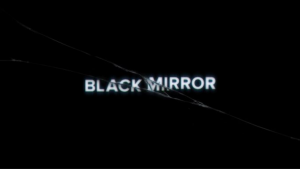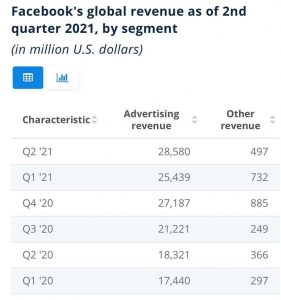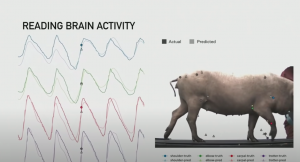Black Mirror is a British anthology television series created by Charlie Brooker that explored various genres, including dystopias utilizing science fiction technology. The series is considered one of the best television series of the 2010s and owned the Primetime Emmy Award for Outstanding Television Movie three times consecutively (Elnahla, 2019). The series adopts technology to comment on contemporary social issues, portrays the tremendous impact of Internet technology on humanity, and raises the alarm about the effects of Internet interaction on the lives of citizens around the world.
.
“Black Mirror” by mezclaconfusa is licensed with CC BY 2.0.
For Zero-Sum Game
This series is close to the social form of the neoliberal economy and monopoly capitalism. Besides, it describes the motivation that internet platform companies obtain profits through enterprise growth and global expansion without considering public value, which negatively impacts people with excessive uses of internet technology. Moreover, the theme of Black Mirror regards technology as a mirror to expose the depth of human nature. In other words, the series focus explored why the more advanced the internet technology, the weaker interpersonal relationships, making people feel more lonely. Furthermore, as regards internet technology innovation, this series supposes human-computer interaction(HCI) that could be a force for evil, meanwhile affirms people will experience HCI revolution for stimulating this technology permeated into daily lives of individuals just like the Internet. However, people are not well-prepared to face the dimensionality reduction of Internet technology in communication, psychology, and artificial intelligence. As Clarke’s laws remarked: “Any sufficiently advanced technology is indistinguishable from magic.” (Clarke, 1994).
Most internet platform companies are merely glad for the benefits of information collection and ignore the responsibility to provide comprehensive information for users in a neoliberal economic system, especially in a monopoly capitalism economic environment. In these fragments of this series, what users do with the platform is usually ignored by platforms, and there are only three purposes:
1. Get people involved and addicted to their platform ecology.
2. Expand the operation scope of platforms as much as possible.
3. Achieve a win-win with advertisers who are the real customers for platforms.
(‘Black Mirror’,TV series 2011-2016)
“If you are not paying for the product, you are not the customer, and then you are the product being sold.” (Sangiovanni, 2019). These rules are also implemented in reality for platforms companies as the primary purpose. According to the latest report, most mainstream internet platforms have already had millions of users and large amounts of aggregate user data, for example, Facebook had about 1.88 billion daily active users in April of 2021, and its total advertising revenue amounted to roughly 28.5 billion dollars (‘Facebook: quarterly segment revenue 2021| Statista’, 2021).

‘Facebook: quarterly segment revenue 2021| Statista’, 2021
However, this excessive data collection has plagued users, albeit making it more convenient for users to access the platform. The application of recommendation systems and search engines focus on advertisers’ profitability instead of whether the content delivery is favorable for users, which is a typical example of the platform. Internet technology will automatically identify key search terms and point to the same results. The search algorithms and filter bubbles make almost everyone in the same internet world, which means it could trap people in information cocoons that cater to user preferences, gain self-awareness and communicate efficiently in a community. While for various communities is not seem smoother or more effective than in an era of information scarcity. Additionally, information cocoons and filter bubbles can also be used as a political propaganda or politicking strategy, which could allow people to notice the fact but not necessarily the truth.

Video – Black Mirror Nosedive Featurette by Youtube. Source –
For Loneliness
This series declares Internet has alienated people from others, and digital relationships are often based on quick replies rather than an emotional response which causes people barely to look forward to intimate relations. Outwardly, it is unnecessary for people to spend too much emotion and etiquette on the Internet for a relationship, however, they become more anxious even lose the ability to communicate with others face to face since they forget how to be honest with others. Sherry Turkmen points out that the Internet media has created three fantasies for us in ‘Alone Together’ ( Turkmen, 2015):
1. People will get attention under any circumstances on the Internet.
2. People’s thoughts and voices can always be heard on the Internet.
3. People don’t have to be alone in the internet ecosystem.
The Nosedive episode perfectly interpreted these phenomenons. In the plot, every person has a mobile phone app to grade others range from one to five. People will get an instant score from everything they did in life, for instance, grading baristas when grabbing coffee or receiving a score from strangers taking the same elevator. Meanwhile, people’s social identity comprises a profile that anyone could view. They have to keep cheerful and kind all the time to get higher marks from others since the higher score represents a more elevated social state.
Screenshot from “Nosedive”, Black Mirror (TV series 2011-2016). Netflix – https://www.netflix.com/watch/80104627
This software almost binds up every corner in the daily life of individuals. However, people only focus on people’s grades, not on who they are, which innuendos the people who are dominated by social media in real life and only care about how others superficially consider themselves. Moreover, in the fast-paced era of the 21st century, some people crave intimacy but have a sense of insecurity. Hence, people have to rely on internet technology to avoid embarrassment and in a particular relationship while protecting themselves. Furthermore, the impact of the Internet on the features of mobile phones in daily life is huge for people. For instance, individuals treat mobile phones as complementary for social relations when they only make calls and send messages. However, it had become the main channel for accessing information with the side influences about the fragmentation of social concern from the Internet in this information explosion era, which results in mobile phone separation anxiety disorder had emerged(Peraman & Parasuraman, 2016). Also, Robert Kraut has found that the sense of social connection and happiness declined in the first to two years for people using the Internet, especially about family relationships (Kraut et al., 1998). Additionally, overuse of social internet networks has been verified to reduce the sense of satisfaction in relationships since it is likely to suspicion and jealousy. Meanwhile, it would aggravate depression and loneliness by a shrinking social circle (Mauss et al., 2011).

Video -Screenshot from “Crocodile”, Black Mirror (TV series 2011-2016). Black Mirror by Youtube. Source – https://www.youtube.com/watch?v=d-NCySETRIc
For Future
On human-computer interaction(HCI), a crucial instrument to interact between humans and computers, the series embodies an unfavorable concept for HCI. The episode ‘Crocodile” plays an insurance agent who investigates a minor traffic incident using a device that manifests people’s memoirs. As the theme of this episode, people’s privacy would be seriously threatened when computers could connect people’s brains, and the internet becomes a intermedium for connecting individuals. It will provide opportunities for antisocial hackers to infiltrate people’s lives through technological loopholes. Meanwhile, people may become surveillance machines that monitor other people as workers for the government when computer chips could tap and replicate people’s memories. Furthermore, this behavior occasions ethical issues, which subverts the definition of human beings if HCI chips could stretch human life span through ‘extraction of consciousness’. In reality, HCI has been around longer, and artificial cochlea was the most successful HCI interface, which was created in 1957 for helping severely deaf patients. In the 21st century, HCI has made a significant breakthrough with the Neurolink technique from Neuralink Corporation.

Video -Screenshot from Neuralink: Elon Musk’s entire brain chip presentation in 14 minutes (supercut) Source – https://www.youtube.com/watch?v=CLUWDLKAF1M
It was founded by Elon Musk, who gives priority to help humans achieve consciousness communication and communicate with artificial intelligence. The Neurolink is developing minimally invasive electrodes associated with the HCI chips to monitor neural activities in the brain. According to the presentation in August 2020, their experiments have proved that their HCI technique could accurately predict neural activities with pigs (Neuralink.com, 2020). Perhaps humans will be able to achieve authentic consciousness communication soon. We should be aware of digital technology and other advanced technologies, they are opportunities instead of threats. Digital technology itself is neutral, it is just like a magnifying glass that expands human’s capability for good and evil.
Bibliography
Black Mirror. Yidio. (2021). Retrieved from https://www.yidio.com/show/black- mirrorutm_source=Google&utm_medium=Search&t_source=64&utm_campaign=wala-18&gclid=CjwKCAjwzaSLBhBJEiwAJSRokp78SlhaU-OXwilG9V1Y5S3iYp2vUDXHbhTFNOm0UVkvuIxR43UgIRoCMPYQAvD_BwE.
Clarke, R. (1994). Asimov’s laws of robotics: Implications for information technology. 2. Computer, 27(1), 58. Retrieved from: https://doi.org/10.1109/2.248881
Elnahla, N. (2019). Black Mirror: Bandersnatch and how Netflix manipulates us, the new gods. Consumption Markets & Culture, 23(5), 506. Retrieved from: https://doi.org 10.1080/10253866.2019.1653288
Facebook: quarterly segment revenue 2021 | Statista. Statista. (2021). Retrieved from https:// www.statista.com/statistics/277963/facebooks-quarterly-global-revenue-by-segment/.
Kraut, R., Patterson, M., Lundmark, V., Kiesler, S., Mukophadhyay, T., & Scherlis, W. (1998). Internet paradox: A social technology that reduces social involvement and psychological well-being?. American Psychologist, 53(9), 1017-1031. https://doi.org/ 10.1037/0003-066x.53.9.1017
Neuralink.com. (2021). Applications. Neuralink. Retrieved from https://neuralink.com/ applications/.
Sangiovanni, A. (2019). Democratic Control of Information in the Age of Surveillance Capitalism. Journal Of Applied Philosophy, 36(2), 213. https://doi.org/10.1111/japp.12363
Mauss, I., Tamir, M., Anderson, C., & Savino, N. (2011). Can seeking happiness make people unhappy? Paradoxical effects of valuing happiness. Emotion, 11(4), 807-815. https://doi.org/ 10.1037/a0022010
Turkmen, S. (2015). Sherry Turkmen: Alone Together: Why We Expect More from Technology and Less from Each Other. Clinical Social Work Journal, 43(2), 247-248. https://doi.org/10.1007/s10615-014-0511-4
Peraman, R., & Parasuraman, S. (2016). Mobile phone mania: Arising global threat in public health. Journal Of Natural Science, Biology And Medicine, 7(2), 198. https://doi.org/ 10.4103/0976-9668.184712
